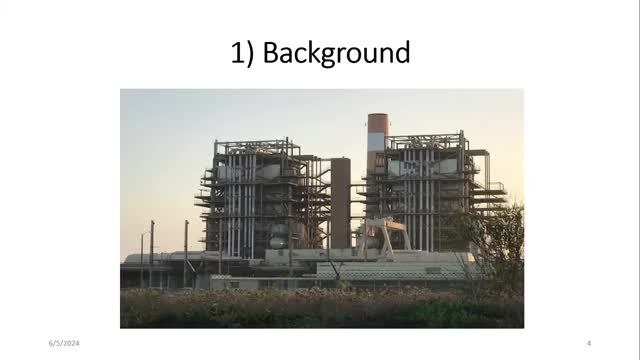Harbor Ecosystem at Risk After Power Station Shutdown
June 06, 2024 | Oxnard City, Ventura County, California

This article was created by AI summarizing key points discussed. AI makes mistakes, so for full details and context, please refer to the video of the full meeting. Please report any errors so we can fix them. Report an error »

In a recent government meeting, officials discussed the significant environmental impact following the shutdown of the Mandalay Bay generating station in February 2018. The station, which had been operational for over six decades, was responsible for extracting approximately 1.5 billion gallons of water monthly from the northern harbor, a flow that was crucial for maintaining the local ecosystem. With its closure, concerns have arisen regarding water quality and safety in the harbor, particularly at Kitty Beach, which has been deemed unsafe for swimming for up to 60 days a year due to elevated bacteria levels.
The marine advisory committee outlined two primary goals: ensuring safe, swimmable water for recreational use and conserving water for agricultural and residential purposes. The committee highlighted the importance of ongoing monitoring, which includes the use of sensors to measure chlorophyll and dissolved oxygen levels, as well as toxicity testing to assess the health of marine life.
Recent findings indicate troubling trends in water quality, particularly after heavy rainfall, which correlates with spikes in bacteria levels and toxicity. For instance, a significant die-off of sea bass at a local enhancement facility was linked to bacterial contamination, prompting immediate intervention measures. The committee noted that urban runoff, especially during rain events, exacerbates these issues, leading to elevated nitrate levels and pollution in the harbor.
To address these challenges, the committee has secured approximately $3.1 million in funding from various sources, including local and state government allocations. A feasibility study for harbor water quality has also been approved, although it will take three years to complete. In the meantime, officials are urging community involvement in monitoring efforts and raising awareness about the impact of urban runoff on local waterways.
The meeting concluded with a call for volunteers to assist in water sampling and a commitment to keep the public informed about ongoing environmental issues affecting the harbor.
The marine advisory committee outlined two primary goals: ensuring safe, swimmable water for recreational use and conserving water for agricultural and residential purposes. The committee highlighted the importance of ongoing monitoring, which includes the use of sensors to measure chlorophyll and dissolved oxygen levels, as well as toxicity testing to assess the health of marine life.
Recent findings indicate troubling trends in water quality, particularly after heavy rainfall, which correlates with spikes in bacteria levels and toxicity. For instance, a significant die-off of sea bass at a local enhancement facility was linked to bacterial contamination, prompting immediate intervention measures. The committee noted that urban runoff, especially during rain events, exacerbates these issues, leading to elevated nitrate levels and pollution in the harbor.
To address these challenges, the committee has secured approximately $3.1 million in funding from various sources, including local and state government allocations. A feasibility study for harbor water quality has also been approved, although it will take three years to complete. In the meantime, officials are urging community involvement in monitoring efforts and raising awareness about the impact of urban runoff on local waterways.
The meeting concluded with a call for volunteers to assist in water sampling and a commitment to keep the public informed about ongoing environmental issues affecting the harbor.
View full meeting
This article is based on a recent meeting—watch the full video and explore the complete transcript for deeper insights into the discussion.
View full meeting
